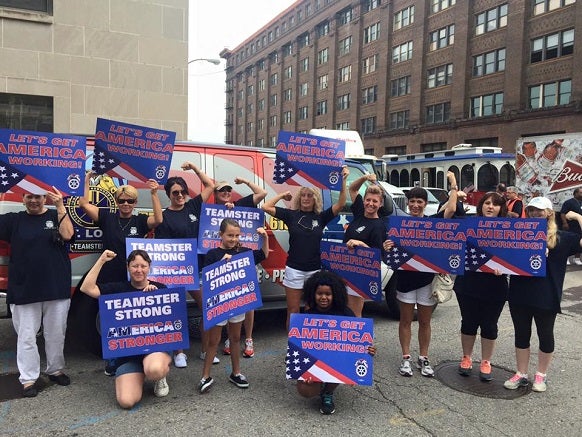Uncategorized
Transaction Tax Would Benefit All Americans

The Teamsters, allied groups and even some lawmakers have put forward the idea of increasing investment in America as a way to get more people to work while at the same time repairing or replacing essential infrastructure. But how to pay for it? A new Economic Policy Institute (EPI) report explains how.
A financial transaction tax (FTT) would increase tax revenue while at the same time decrease financial sector waste. EPI estimates that such a surcharge could raise upwards of $400 billion a year, while curbing financial transactions that do not positively affect the economy, such as the sale of derivatives.
“With the extraordinary rise in income inequality in recent decades, we need to look for progressive revenue sources to protect and expand public investment and social insurance programs,” said Josh Bivens, EPI’s Research and Policy Director.
Given that the marginal value of many U.S. financial transactions for the nation’s economy are near zero or even negative, instituting a FTT on such deals would boost American household incomes. The report states everyday Americans would no longer be paying for extraneous financial services that do not result in higher returns.
The FTT idea is not new. Last year, for instance, renowned economist Joseph Stiglitz issued a report of his own on behalf of the Roosevelt Institute where he called for the enactment of such a tax to lessen short-term trading. Sen. Bernie Sanders (I-Vt.) and Rep. Keith Ellison (D-Minn.) have also sponsored legislation that would have put such a surcharge in place.
But now the idea is gaining even more steam. The Democratic National Committee’s platform includes a provision endorsing the FTT on excessive speculation. And Rep. Pete DeFazio recently introduced his own bill that would levy a 0.03 percent tax on the trading of stocks, bonds and derivatives.
When the Teamsters and others talk about investment, that doesn’t just mean building things. It can also mean incentivizing financial investments that help the economy and Americans as well. Too many learned firsthand during the Great Recession what happens when we allow Wall Street to play games with the nation’s financial future.
It’s time for all Americans to benefit. Let’s pay for the future this nation deserves!